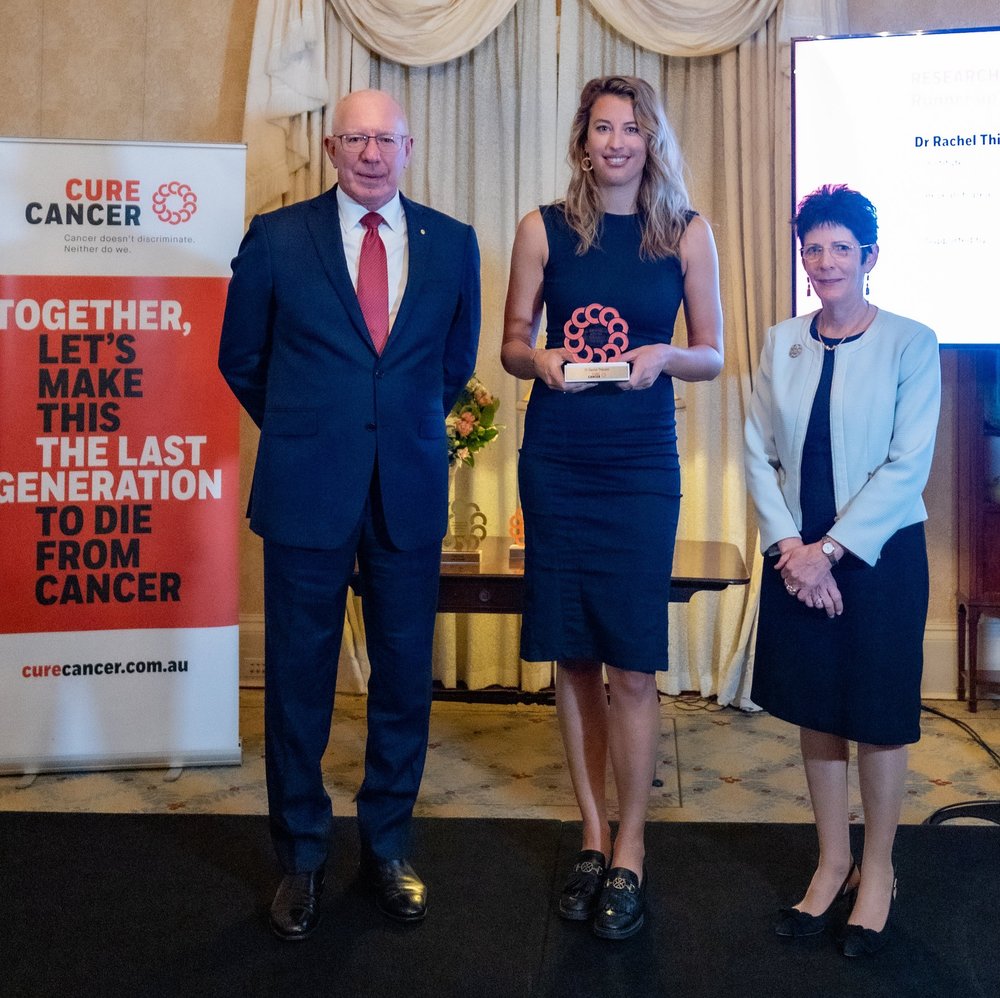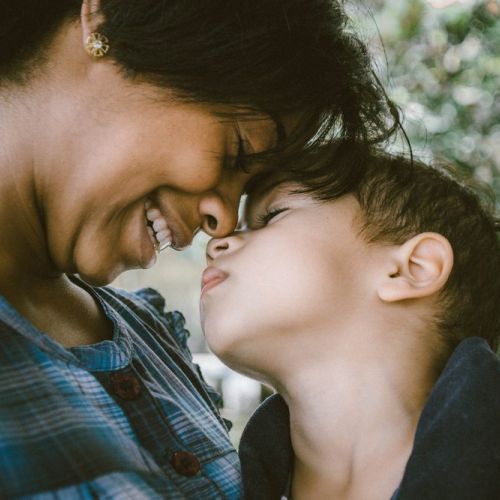On April 4, Cure Cancer was honoured to be recognised by the Governor-General of Australia His Excellency General the Honourable David Hurley AC DSC (Retd) with a reception held at Admiralty House.
For the last six years, His Excellency has been a Patron of Cure Cancer and we were privileged for him to announce our 2021 Researcher of the Year. We want to thank all of our wonderful guests including researchers, board members, corporate partners, ambassadors, fundraisers and donors who all took the time to attend. The ongoing help from our wonderful supporters is the core of Cure Cancer, we’re incredibly grateful for you all.
Over the years, the Researcher of the Year Awards has recognised 25 brilliant researchers who have achieved breakthroughs and considerable advancements in the field of cancer research. The awardees were chosen based on excellence and overall impact and have gone on to excel in their fields.
OUR 2021 TOP 3 RESEARCHERS OF THE YEAR

DR ORAZIO VITTORIO - RUNNER UP
Institute: The University of New South Wales and the Children’s Cancer Institute
Research area: Neuroblastoma/Childhood Cancer
Being one of the first people to recognise the importance that copper has in cancer cells, his work has focused on using it as a therapeutic strategy for neuroblastoma, an aggressive childhood cancer for which survival rates are poor, despite the use of intensive therapy.
The treatment of neuroblastoma is incredibly toxic and the 50% who survive it deal with short and long-term side effects of treatment for the rest of their lives, including an increased risk of heart disease.
In his current research, Orazio has found a drug that targets the high amount of copper in neuroblastoma cells which is less toxic than chemotherapy treatments. After four years of funding, (the clinical trial hasn’t started yet) Orazio has initiated a close collaboration with clinicians to move into clinical trials in the near future to improve survival for children with neuroblastoma.
Orazio’s accomplishments in his research have seen him become a Senior Lecturer at UNSW in addition to his role as a Team Leader at the Children’s Cancer Institute.
Orazio’s current grant is generously funded by the Melissa Lewis Foundation.

DR RACHEL THIJSSEN - RUNNER UP
Institute: Senior Postdoctoral Fellow at the Walter and Eliza Hall Institute of Medical Research
Research area: Leukaemia/Blood Cancer Researcher
Rachel’s work has focussed on chronic lymphocytic leukaemia (CLL), the most common adult leukaemia in Australia. The laboratory she works in contributed significantly to the development of venetoclax, a treatment that targets the key cell survival protein BCL2 and is effective for chronic lymphocytic leukaemia patients. In most patients, the disease returns while they’re on treatment.
Rachel's research is looking at why the drug fails and how blood cancer cells evade death. Her goal is to design new venetoclax combination therapies to completely eradicate the cancer. Rachel has recently been published as a shared first-author in the international journal Cancer Discovery for her discovery of a mutation in BCL2 in some patients who progress while on venetoclax. She went on to show that loss of the tumour suppressor TP53 leads to shorter progression-free survival while on venetoclax in leukaemia and this led to a first-author publication in the international journal Blood.
Rachel’s grant was co-funded by Cure Cancer, Cancer Australia and 50% funded by The Can Too Foundation.

DR NAJOUA LALAOUI - 2021 RESEARCHER OF THE YEAR WINNER
Institute: Walter and Eliza Hall Institute of Medical Research, VIC
Research area: Blood Cancer/Leukaemia
Najoua is a Group Leader at the Peter MacCallum Cancer Centre. Najoua’s work focused on cancer therapeutic targets called Smac-mimetics. Her previous studies at WEHI have shown that protein MK2 blocks the efficacy of smac-mimetics in blood cancer. Her use of a combination of smac-mimetic and MK2 inhibitors provided a remarkable therapeutic effect in leukaemia. The chemical linkage of a smac-mimetic with an MK2 inhibitor will allow the complete destruction of MK2 and will significantly increase the efficacy of this combination.
Using clinical anti-cancer agents, Najoua is looking at new therapeutic strategies to increase the chance of killing cancer cells. Her research determined how particular drugs work, and thus predict the tumour types that these drugs may work in best and identified the patients who can benefit the most. Collectively, her studies provide a robust platform of preclinical data which helps design future clinical trials.
Najoua’s finding has been published in top-ranked oncology and scientific journals and has also led to the filing of international patents for new cancer drugs.
Najoua’s grant was co-funded 50% by The Can Too Foundation.










